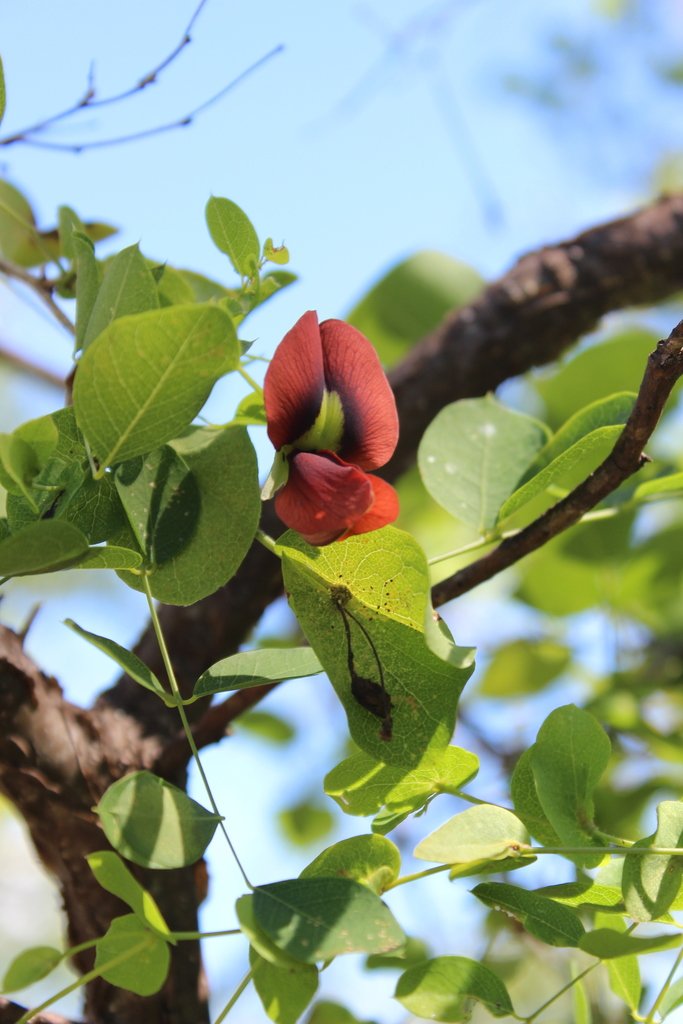Alamos Pea Tree
Brongniartia alamosana
Family: Fabaceae
CHARACTERISTICS
Deciduous large shrub or small tree growing to 10’ tall. Brownish red pea flowers appear in summer followed by legume pods—the pods are two to three inches long and burst open when ripe with a loud popping noise. This method of dispersal allows the seeds to be flung great distances from the parent tree.. Interesting corky trunk. This plant is not in the trade.
There are a few other related Brongniartia species with similar cultivation requirements and looks.
LANDSCAPE USE
Small specimen tree.
GROWING CONDITIONS
AN EXPLANATION OF TERMS USED
SUN full to part sun
WATER moderate to low
SOIL not picky, but well-drained
HARDINESS this plant should be protected from frost, but can handle short cold snaps as low as 15°F, but will need to regrow from damage
BASIN high zone
CONTAINER does moderately well in containers
NUTRITION low
MAINTENANCE very little
Photo by Luis Alberto, iNaturalist
Brongiartia alamosana at the UA Campus Arboretum where you can see some of the only plants in cultivation in the United states
ECOLOGY
As with all legumes, the flowers are used by various pollinators. Legumes have mycorrhizal relationships that improve the nitrogen availability in soil.
ETHNOBOTANY
Unknown.
NATURAL DISTRIBUTION
Grows mostly on rocky slopes in thornscrub and tropical deciduous forest in the Sierra Madre, Sonora Mexico.
TAXONOMY AND NAME
This species is in the Fabaceae, the legume family. There are 53 species of Brongniartia native to Mexico and Texas and to Bolivia.
The genus name honors French botanist Adolphe T. Brongniart. The species name refers to the city of Alamos Sonora where it was first collected in 1890 by Edward Palmer.




